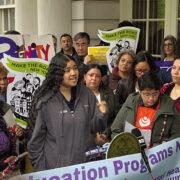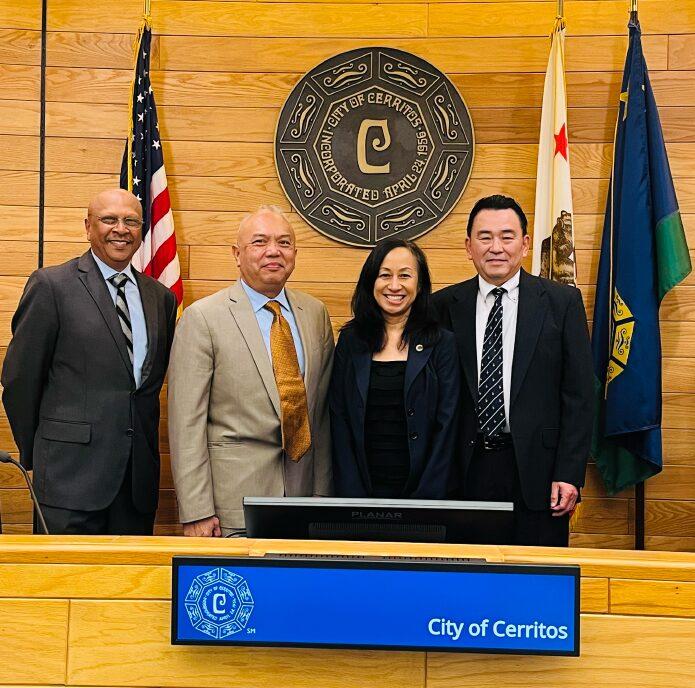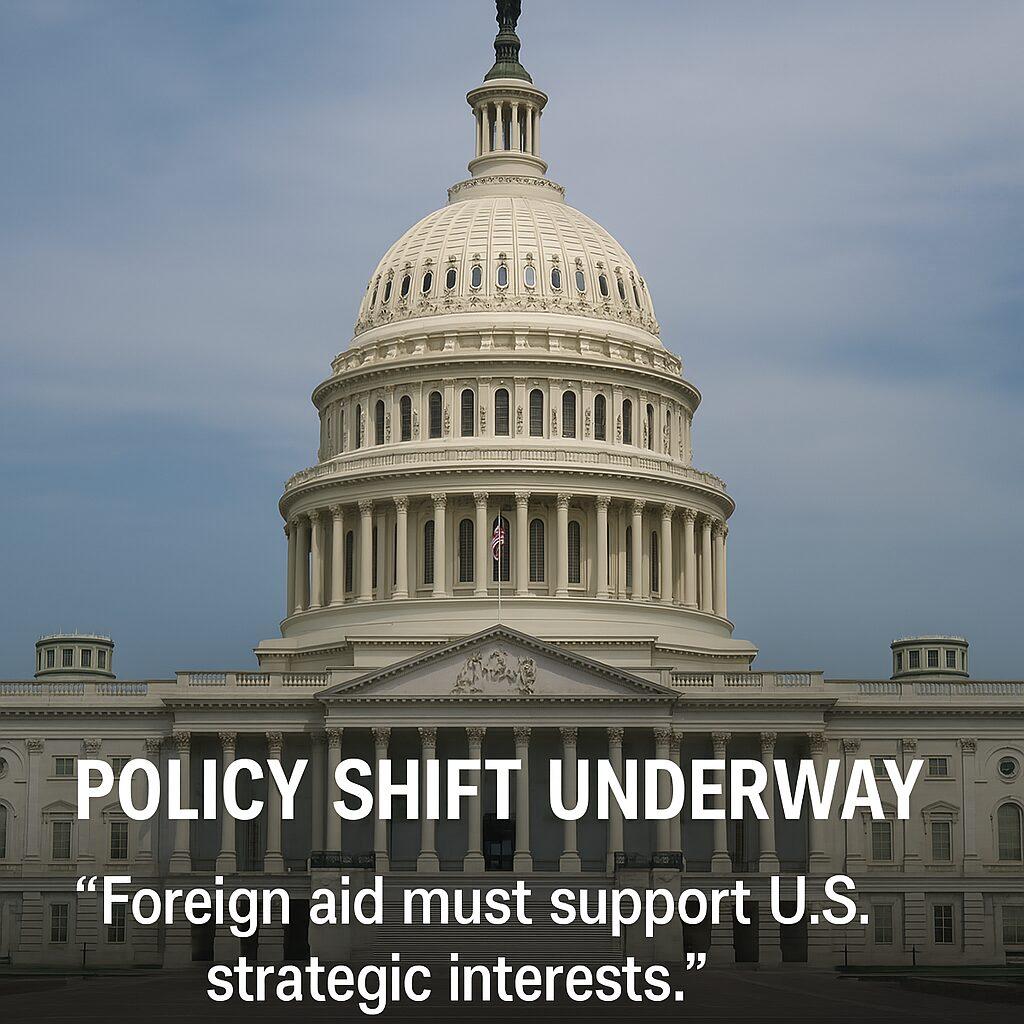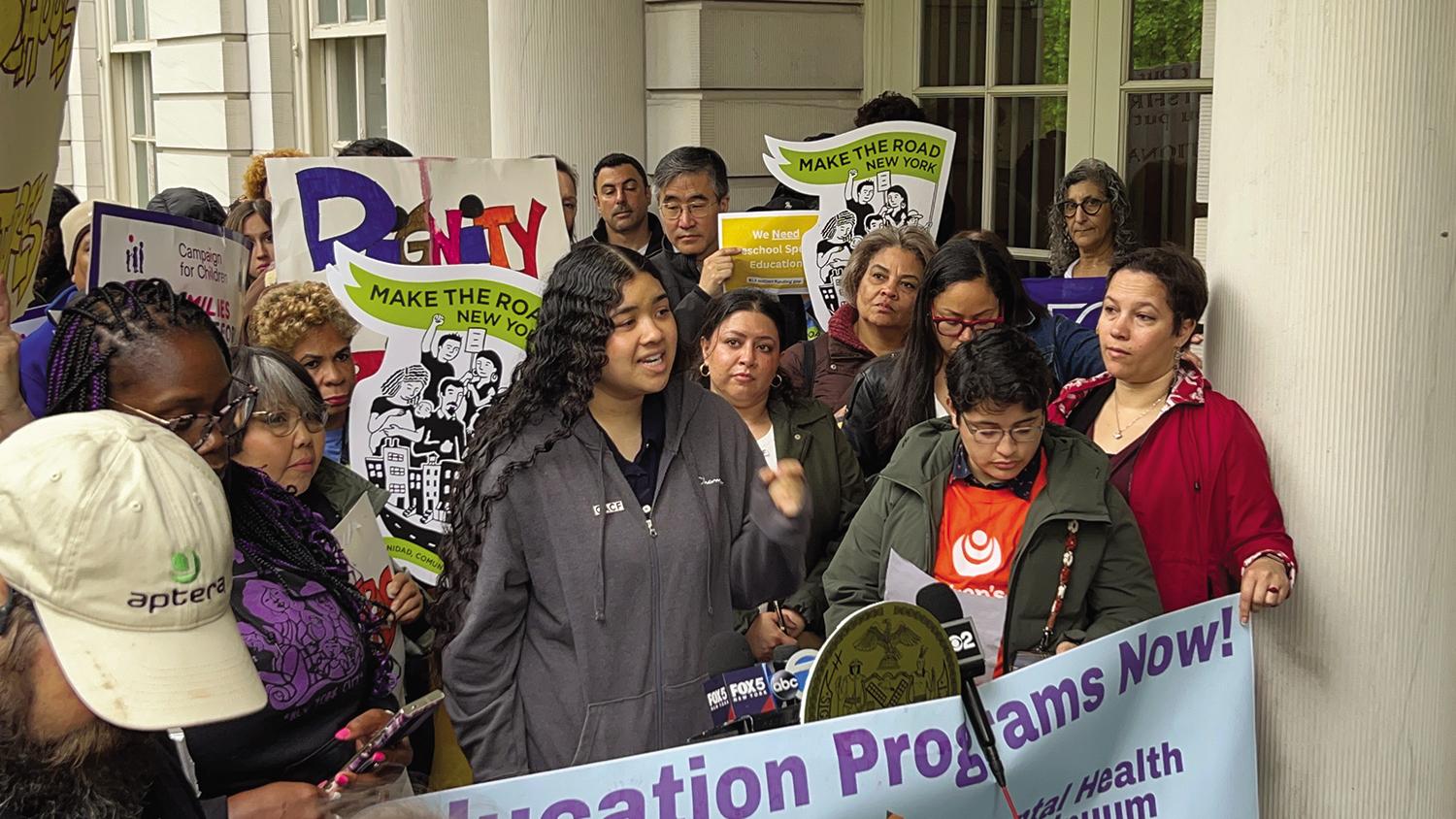
Major campaigns focused on mental health, language access, and anti-bullying and harassment
Youth Leaders from the Coalition for Asian American Children’s and Families (CACF) Asian American Student Advocacy Project (ASAP) presented the results of their 2023-2024 advocacy campaigns at a Community Briefing on June 7, Friday at Teach for America’s offices on 25 Broadway.
Marking ASAP’s 20th anniversary, the program, established in 2004, aims to empower young AAPI New Yorkers as informed advocates for their communities. Over the past academic year, 32 Youth Leaders focused on three major campaigns: mental health, language access, and anti-bullying and harassment, addressing critical issues faced by AAPI youth in New York City public schools.
CACF Co-executive directors Anita Gundanna and Vanessa Leung praised the Youth Leaders’ efforts, emphasizing the significance of youth advocacy. “ASAP was built on the belief that our young people are experts on their own experiences,” they stated. The Community Briefing highlighted the research conducted by these leaders, presented to teachers, families, and elected officials.
Special guests included City Council Committee on Education Chair Rita Joseph and Councilmember Mercedes Narcisse, who awarded citations to the Youth Leaders. Additionally, staff from Councilmember Shekar Krishnan’s office honored the leaders with citations.
The current ASAP cohort, selected through a rigorous application process, represented 17 different New York City public schools, 15 ethnic groups, and spoke eight languages. This diversity highlights the inclusive nature of the program and the varied perspectives brought to the advocacy campaigns.
Among the youth leaders in the cohort were Filipino Americans such as Evangelina Ago, a 10th grader at the United Nations International School. She is part of the Anti-Bullying and Harassment Campaign and this year, her team focused on incorporating restorative justice into New York City school environments, aiming to demonstrate its effectiveness over traditional punitive measures in resolving student disagreements.
Evangelina credits the ASAP program for her growth in teamwork and leadership.
“ASAP has really helped me realize that it’s better to incorporate everyone’s voices when figuring out solutions,” she said. “We also talk a lot about how it’s important to take a step back sometimes and listen while also encouraging others to speak up.”
She also highlighted the need to challenge stereotypes about AAPI students. Evangelina wishes people would see beyond the model minority myth and recognize the diversity and individuality within the AAPI community. She believes that breaking these presumptions can lead to a better understanding and support for AAPI high schoolers.
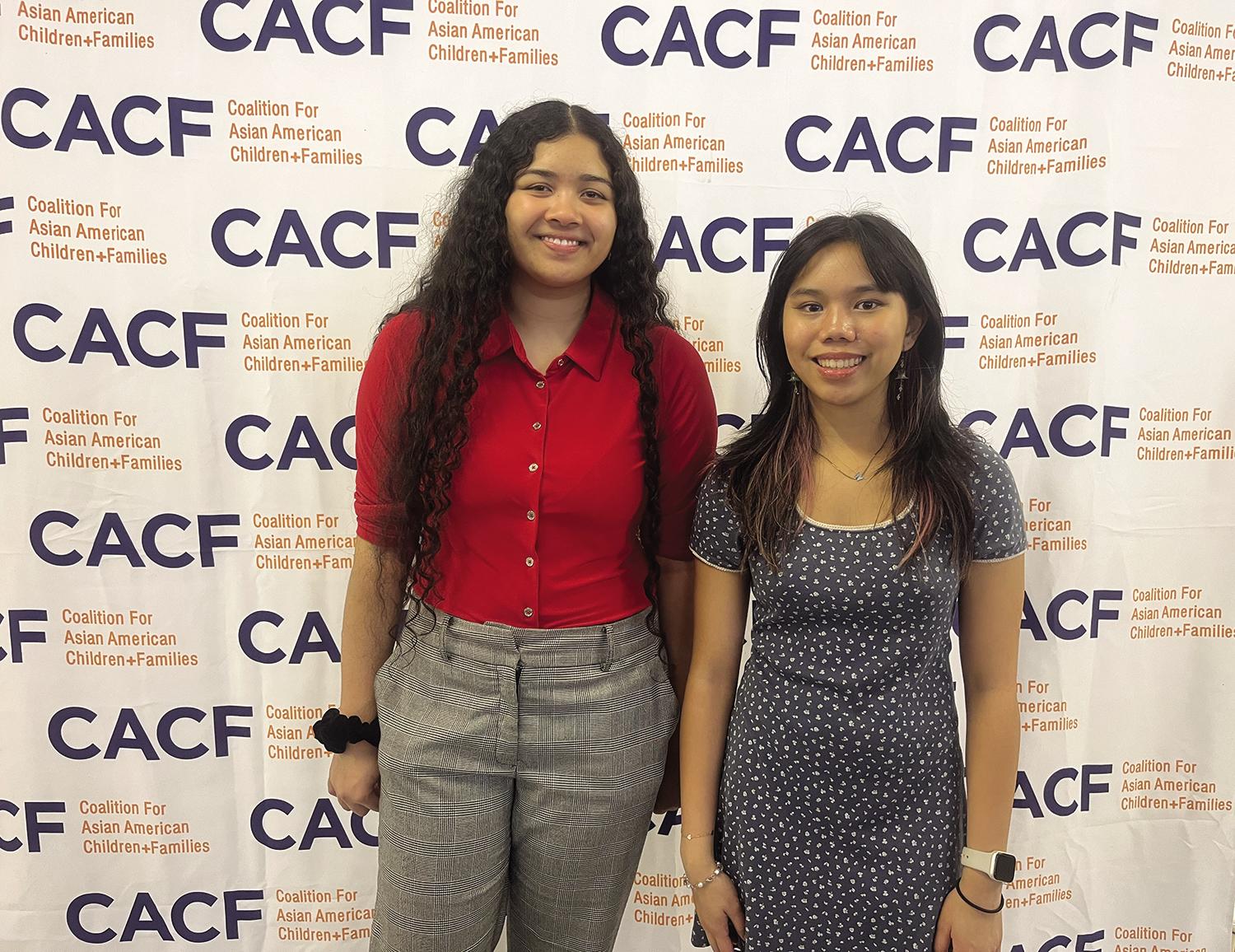
Aisha Mowla, a 12th grader at Brooklyn Technical High School, is involved in ASAP’s Mental Health Campaign.
“Our main focus this year was working on getting more social workers in NYC schools,” she said.
“Right now, there are less than 500 school social workers in the NYC public school system who are supposed to serve nearly one million students. Some schools don’t even have one social worker in them right now.”
Aisha emphasized the need for more mental health resources, including AAPI mental health professionals, to better support students.
Born to a Black and Pakistani father and a Filipino mother, Aisha recently spoke at City Hall against education budget cuts, an experience that honed her public speaking and leadership skills. These opportunities, provided by ASAP, have empowered her to effectively advocate for mental health resources.
Through her involvement in events like CACF’s Catalyst for Change Awards Gala and the AAPI Classroom partnership with the NYC Comptroller’s Office, Aisha has gained valuable networking and presentation skills. These experiences have taught her how to deliver impactful messages and advocate for important issues, strengthening her role as a youth leader.
Another ASAP Youth Leader Reona Alam, a senior at Manhattan Center for Science and Mathematics, reflected on the mental health campaign. “My team and I worked hard to understand the mental health needs of AAPI NYC public school students and current disparities in accessing help,” she said. Julie Wu, a senior at Midwood High School, emphasized the importance of the Community Briefing as a collective presentation of their advocacy work. Harpreet Singh, a senior at Stuyvesant High School, discussed the progress in the language access campaign, highlighting the significance of their efforts in addressing ongoing barriers. n


